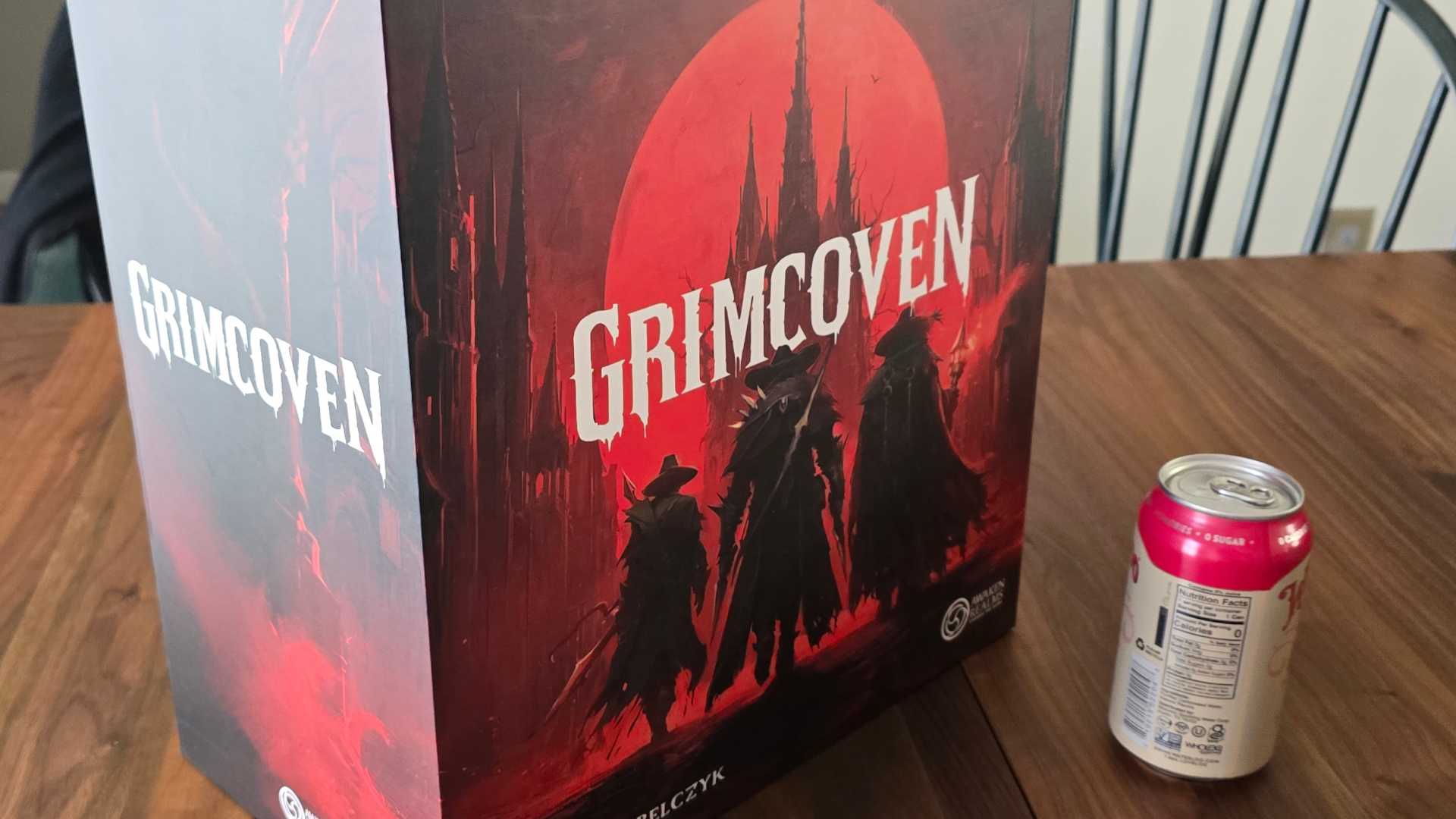The Story Behind Rabbit Hole
The lowdown on the Oscar nominated drama
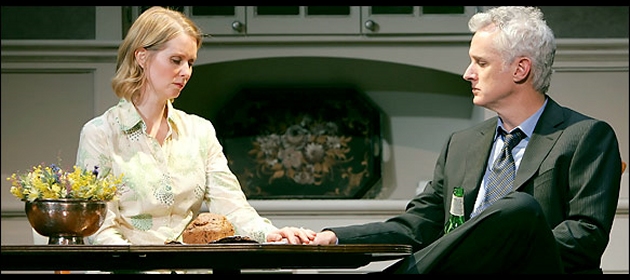
Write what you fear
Let’s be clear: Rabbit Hole is not another adaptation of Alice In Wonderland . Despite that Carroll-echoing title, it is a story about love. It’s also a story about loss, grief, and pain. And then there’s that wickedly prickly humour…
But we’re getting ahead of ourselves. First of all, Rabbit Hole was a play. Penned by playwright David Lindsay-Abaire, it was a departure for a scribbler best known for his absurdist comedies (see Fuddy Meers ).
Having just become a new father, Abaire decided it was time to move away from comedy and write about something that terrified him – the loss of his newborn child.
“I just wrote about what I knew,” he says. “Sometimes it was conscious, sometimes it wasn't. I knew I wanted to write a story about loss and people grieving in different ways.” And Rabbit Hole was born…
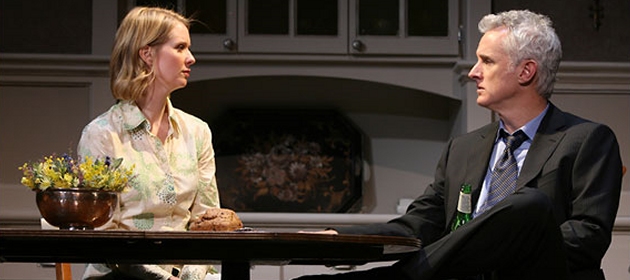
A world of pain
Tracking the lives of married couple Becca and Howie, Rabbit Hole steps into their home as they are grieving the loss of their four-year-old son. Through their differing experiences of grief, we see them cope in their own unique ways – sometimes through hurt, sometimes through humour.
Nominated for several Tony awards during its first full New York production in 2006, Sex And The City star Cynthia Nixon went on to win the Tony for Best Actress thanks to her portrayal of Becca.
Then fate stepped in. “I was sitting in a coffee shop in Nashville where I live,” remembers Nicole Kidman, “and I was reading a review in the New York Times about this play Rabbit Hole, and it sounded wonderful.” It sounded, in other words, like the perfect material for a movie…
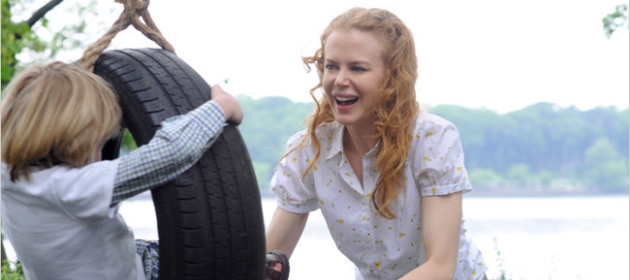
Lets talk adapting
A keen Kidman got on the blower to playwright Abaire and asked if he’d be interested in adapting his play into a movie script
“He was interested right away!” Kidman recalls. “We said we wanted him to write the screenplay and that we'd do everything to protect the material. That's what we can offer you. We can't offer you loads of money but we can offer you that.”
For his part, Abaire hadn’t even thought about turning his play into a film. “No, I honestly hadn't,” he says. “I said, ‘Here's how I think I would open it up,’ and a lot of things I said ended up in the movie.
"Nicole worked four years trying to raise the money for this movie. And she did it, but it took the starpower of Nicole Kidman to make this happen.” All they needed was the right director…
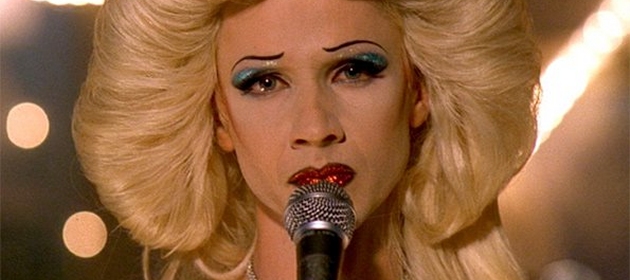
An odd choice?
At the same time that Rabbit Hole was taking the stage by storm, writer-director-actor John Cameron Mitchell was causing a similar stir over at the Cannes Film Festival. There, in May 2006, the Hedwig auteur debuted his daring sophomore feature Shortbus – a sexually explicit exploration of Brookyln residents all attempting to make a connection.
Not exactly the first person one might link to an intimate, raw drama like Rabbit Hole , but Kidman saw in Mitchell the kind of diverse talent that could bring something special to the film.
“I really believe that talent is just talent,” she explains, “a lot of times a person can simply be typecast. I've always tried to break out of that as an actor, and I believe it happens to directors as well." It was time for Kidman to get on the phone again…
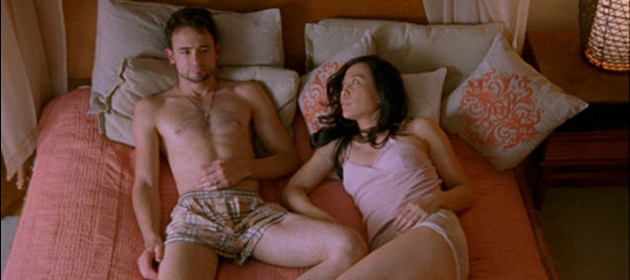
Common threads
“I was just bowled over by it,” confirms Mitchell, after he was sent Abaire’s script (a near pristine third draft) for the film.
“I very rarely come across other people’s stuff that effects me like this did. Probably because, you know, of my own family history and experience losing a brother, it felt necessary to be a part of [ making the film ].”
Despite having made his name with Shortbus and 1998 cross-dressing musical Hedwig And The Angry Inch , Mitchell didn’t feel that Rabbit Hole was all that different from his previous material. To him there was a very discernable link.
“There is, and I could see it right away,” he says. “It wasn’t like, ‘What am I going to do with this new kind of subject matter and more restrained style of filmmaking?’ There wasn’t any panic.
"You approach every script as an actor differently, but also trying to find the commonalities with past projects that speak to you. It’s just the same as a director.” Now for a cast…
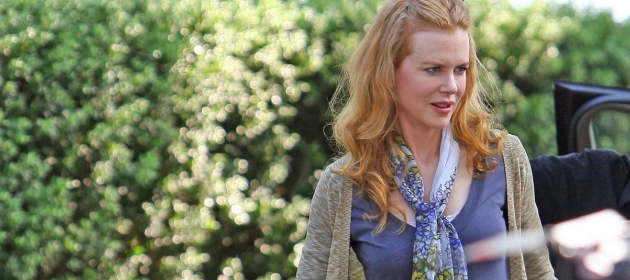
Mitchell on Kidman
Luckily for Mitchell, he already had the perfect Becca in the form of producer Nicole Kidman.
“Becca was a perfect fit for Nicole,” he says. “It’s a character she was born to play. You always think of [ her ] best characters as being these fortresses that you can see the emotions pouring out violently from underneath a very contained surface, and that’s Becca.
“Personally I think this is Nicole’s greatest performance. This character is so unadorned and down-to-earth, and her performance feels more multidimensional than anything else I’ve seen her in.” Great! But the search was now on for an actor who could hold his own against Kidman as husband Howie…
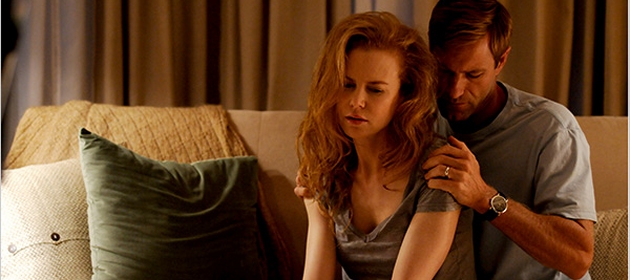
Eckhart
Before they could begin casting Howie, Kidman had one main problem: the budget for Rabbit Hole was tiny. At just $10m, it was barely more than Mitchell’s first film ( Hedwig cost $6m to make).
“There wasn’t any money to offer on this film,” Kidman says, “there was nothing other than the material and the promise of an environment where he would be able to explore and hopefully feel very safe.”
Happily, Dark Knight star Aaron Eckhart was determined to be a part of Rabbit Hole , despite the lack of funding. “I had always wanted to work with [ Nicole ],” the actor reveals. “I have a tremendous amount of respect for her abilities as an actor.
"I don’t usually get calls from people like her, I was honoured and immediately said yes to the project. We were easy with each other and respected each other and admired each other, so I think that makes it that much easier when you’re filming such tough material like this.” Just as important as the actors, though, would be the tone of the film…
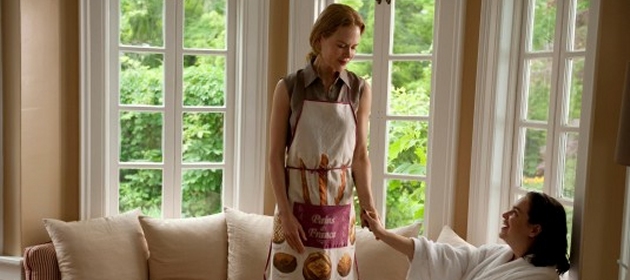
Tone it up
“The tone is so delicate, so easy to mess up,” admits Abaire. “Of course I was terrified of it.
"When I sat down with John, John understood the script implicitly, and understood the tone, and had no interest in turning it into the sentimental movie of the week, which it could so easily be. He understood the humor in it, which is so important to the tone of the story.”
Abaire was right - Mitchell completely understood what the playwright was trying to do with his story.
“If you look at the play it calls for a certain level of reality,” says Mitchell, “also for a certain amount of gallows humour or respites from the intensity.
"I looked at films from my youth that rang true that were also not too challenging in style - like Ordinary People , Tender Mercies , Kramer vs. Kramer - that I felt got it right.
"They didn’t talk down to their audiences. Didn’t treat them as any sort of lesser beings you had to explain every little thing to.” Then there were the personal challenges…
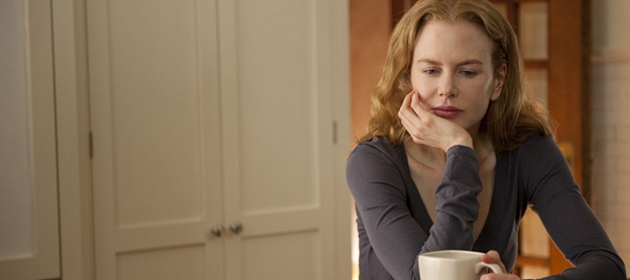
Personal challenges
“When we first optioned the play, I wasn't pregnant,” reveals Kidman. “This has been years in the making, so there wasn't a thought of being pregnant. I thought I'd never get pregnant.
"But I get what she goes through. I get her relationship with her mother, her sister, God. I get the way in which she is so angry.”
As the Rabbit Hole film became more and more a reality, Kidman discovered that her sudden pregnancy made her react to the material in a whole new way. But she refused to back down after working so hard to get the project off the ground.
“It is not in my nature to run away from something I'm afraid of,” she says. “Even though I'm scared, that tells me that I have to go there. I tried to do it on The Hours as well, because I really didn't want to do that film.
"When the money came together for Rabbit Hole , I was really not ready. I just wanted to be absorbed in the bliss of having my baby.” All of that, though, ended up helping in the grieving scenes…
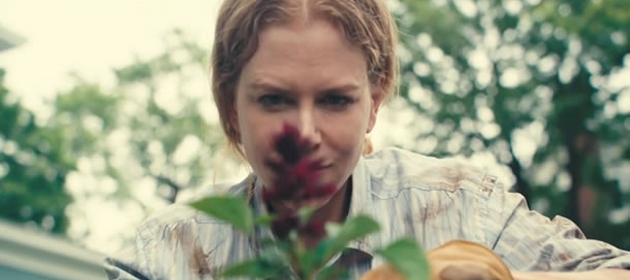
Cry me a river
“I think for whatever reason the emotions were very, very available,” the actress says. “The film has a situation that you most fear to tread - as a mother it’s the most terrifying place to go.
"I wanted to honour that, whether for people who have lost a loved one, in terms of a spouse, a child….it’s not explored that often and it needs to be.”
In her endeavours to do the role justice, Kidman even asked if she could attend grief seminars in order to speak with people who had lost a loved one – but found she wasn’t allowed.
Says Kidman: “I tried to and I was told, ‘Unless you’ve actually lost a child or a loved one you’re not to come into the room.’
"I’m glad that they didn’t [ let me ] now, when I look back, because the way that the emotions came to me in the character were through just my own, the way that I vibrate and the rawness of loving my children.” Not that there wasn’t room for laughter…
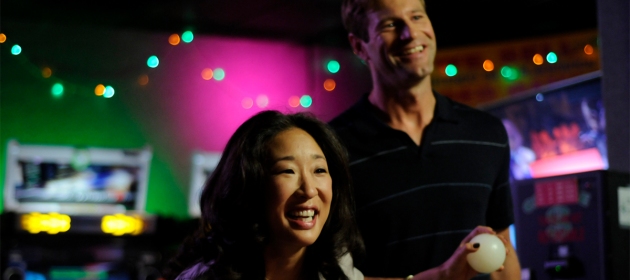
No laughing matter
The key to Rabbit Hole ’s success was always going to be the way it stitched humour into grim proceedings. Abaire’s original play featured a wealth of humour despite the desperate topic, and adds a sarky, snarky wit to Mitchell’s final film.
“The great thing about it is that everyone is bursting with life, in terms of their sense of humour, the grief, the crying, the anger,” says Eckhart. “You had all these pistons firing off at the same time and on the set you didn’t know which way it was gonna go.
“The great thing about the script, the direction and the quality of actors in this movie is that it could go any way. Everybody could take it and fire back. It was a very safe set, but at the same time a very unpredictable set, we were able to play with each other.” Kidman agreed…
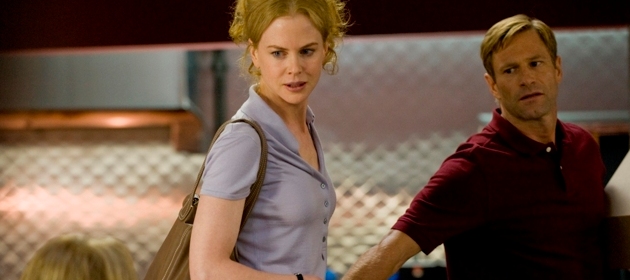
Youre having a laugh
Kidman echoes her co-star's sentiments that it was “hugely important” to infuse Rabbit Hole with humour. “In real life, most of the time, you can still laugh at different times through enormous pain,” she reasons. “There's still some place where humour will arrive and I think families need that.
“It's a film about a family trying to connect with each other, trying to stay together, trying to heal each other - triggering responses and causing pain when they think they're trying to help. It's so complicated.”
With filming scheduled for a brief 28 day period, the cast and crew really had their work cut out for them.
Shooting took place mostly in the Douglaston part of Queens, New York. When that wrapped, Joe Klotz took on editing duties, while Anton Salko sought to craft a score that would complement Rabbit Hole 's uniquely dry, wry take on grief. Only time would tell if Mitchell and co had managed to do Abaire's original play justice...
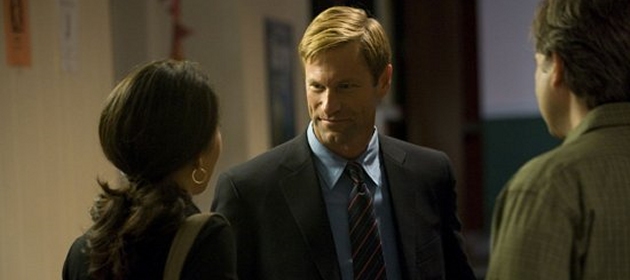
Film this
In the end, Rabbit Hole manages to escape the pitfalls of other stage-to-screen adaptations with a story that breaks the bounds of its origins to create a truly emotional movie experience. It’s not just a film based on a play.
“Thank god!” exclaims Kidman. “It's about getting in close to people. [ John ] was able to put the camera right there and was able to capture some moments through just a look or a touch or even some silence.”
As well as the efforts of the entire cast – including a fantastic Dianne Wiest as Becca’s mother, and Sandra Oh providing some pitch perfect comedy flourishes – credit must be attributed to Mitchell and his approach to the material.
“With this, I knew immediately that stylistically this would be a more restrained [ picture ] than either Hedwig or Shortbus obviously were,” he says. “At the same time, the characters of Becca and Howie aren’t too different than those found in my other pictures.
"They’re searching, trying to figure out how they fit in with the rest of the world, the only difference being that they’ve lost a child not an angry inch or something similar.” Time to show the world…
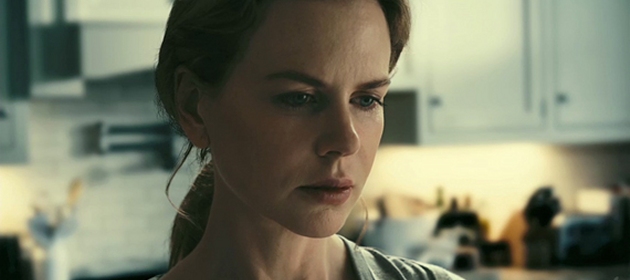
Rabbit ruminations
Debuting at the Mill Valley Film Festival in October 2010, Rabbit Hole has gone on to receive almost unanimous acclaim.
Variety pegged it “a refreshingly positive-minded take on cinema's ultimate downer: overcoming the death of a child”, while Roger Ebert notes that the film’s “humour comes, as the best humour does, from an acute observation of human nature”.
Importantly, Abaire – who is currently working on the script for Sam Raimi’s Oz The Great And Powerful – was happy with the final product: “It was exactly as I imagined it. And better!
"Of course everyone contributed things that had nothing to do with me, but it was truthful and organic to the story, and therefore right.” Then came the Oscars…
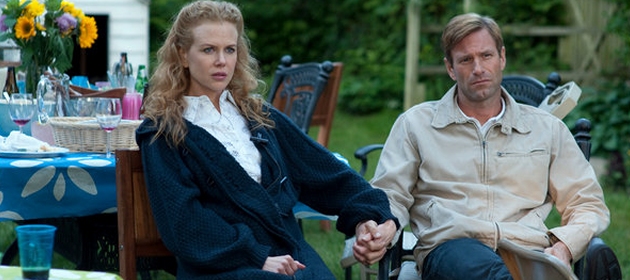
Road to the Oscars
With the announcement of the 2011 Oscar nominations came perhaps Rabbit Hole ’s glitziest reward – a nomination for Nicole Kidman in the Best Actress category.
“What an extraordinary journey this film has taken me on!” reacted Kidman. “ Rabbit Hole has been a labour of love and I'm so thankful to John Cameron Mitchell, David Lindsay-Abaire and the brilliant cast. This nomination reflects all of the heart and soul that these people have put into it and I can't thank them enough.”
Despite being overlooked in the Best Director field (a mistake), her director is overjoyed for her. “I’m happy that people seem to be responding in such a positive way towards the film,” he says, “and I’m very happy for Nicole. It’s wonderful.”
So what's that title all about? You'll have to watch to find out...
Josh Winning has worn a lot of hats over the years. Contributing Editor at Total Film, writer for SFX, and senior film writer at the Radio Times. Josh has also penned a novel about mysteries and monsters, is the co-host of a movie podcast, and has a library of pretty phenomenal stories from visiting some of the biggest TV and film sets in the world. He would also like you to know that he "lives for cat videos..." Don't we all, Josh. Don't we all.
Weekly digests, tales from the communities you love, and more
You are now subscribed
Your newsletter sign-up was successful
Want to add more newsletters?

Every Friday
GamesRadar+
Your weekly update on everything you could ever want to know about the games you already love, games we know you're going to love in the near future, and tales from the communities that surround them.

Every Thursday
GTA 6 O'clock
Our special GTA 6 newsletter, with breaking news, insider info, and rumor analysis from the award-winning GTA 6 O'clock experts.

Every Friday
Knowledge
From the creators of Edge: A weekly videogame industry newsletter with analysis from expert writers, guidance from professionals, and insight into what's on the horizon.

Every Thursday
The Setup
Hardware nerds unite, sign up to our free tech newsletter for a weekly digest of the hottest new tech, the latest gadgets on the test bench, and much more.

Every Wednesday
Switch 2 Spotlight
Sign up to our new Switch 2 newsletter, where we bring you the latest talking points on Nintendo's new console each week, bring you up to date on the news, and recommend what games to play.

Every Saturday
The Watchlist
Subscribe for a weekly digest of the movie and TV news that matters, direct to your inbox. From first-look trailers, interviews, reviews and explainers, we've got you covered.

Once a month
SFX
Get sneak previews, exclusive competitions and details of special events each month!
